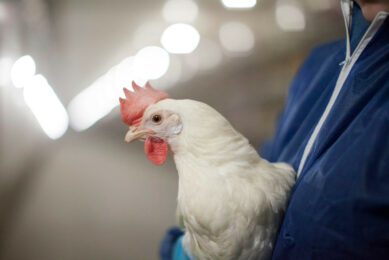Local bill set to ban arsenic in chicken feed
Bills filed in the House and Senate of the state of Maryland would ban the use, sale and distribution of any commercial poultry feed with additives that contain arsenic.
Tuesday, the Senate Education, Health and Environmental Affairs committee heard testimony on its version of the bill.
Attorney General Douglas Gansler, in June wrote an opinion column in the Washington Post arguing the Food and Drug Administration should ban arsenic from chicken feed. Tuesday, he said a ban in Maryland would benefit the poultry industry and the environment.
Roxarsone, a widely used feed additive that contains arsenic, is "a tool to improve bird health and welfare," said Bill Satterfield, executive director of poultry trade organisation Delmarva Poultry Industry Inc.
Banning the use of roxarsone would put Maryland chicken growers and feed producers at an economic disadvantage, and result in "a lot more sick birds, a lot more dead birds," he said.
Essential tool
Elizabeth Krushinskie, a veterinarian who serves as director of quality assurance and food safety at Mountaire Farms in Delaware, called roxarsone an "essential and critical tool."
But not all poultry farmers use roxarsone. Perdue stopped using additives that contain arsenic about three years ago, said spokesman Luis Luna.
Improve management
The Salisbury-based company chooses not to use the additive because it has "worked hard to have an approach to bird health that works without the use of arsenic. […] that’s good animal husbandry and best management practices that produced that result," Luna said.
Still, Perdue does not support the bill, Luna said. “The science doesn’t support a ban right now. It isn’t clear,” he said. “If people believe it’s a safety issue, then they can take it up with the FDA. Right now, it’s about emotion and sloganeering, which creates confusion, and not about a review of the science, which is what we trust the FDA to do.”
Arsenic occurs naturally in the environment, but it has been linked to cancer and other negative health effects, according to the Environmental Protection Agency.











